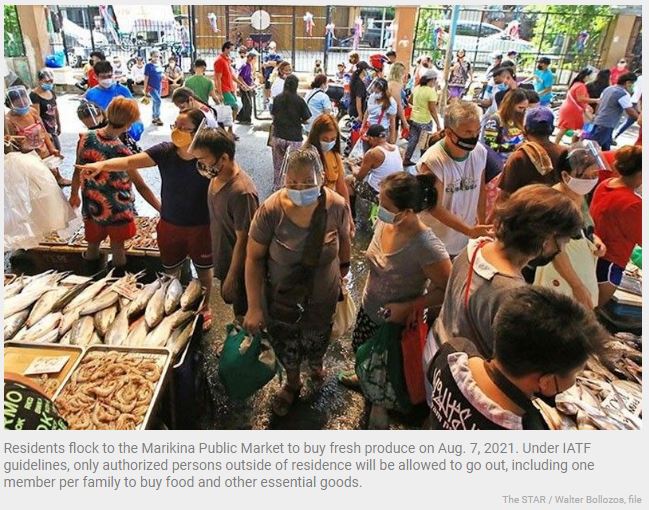Philippines: BSP vows to tame inflation
MANILA, Philippines — The Bangko Sentral ng Pilipinas (BSP) vowed to tame inflation after breaching the two to four percent target last year amid rising global oil prices and elevated food prices.
In an open letter to President Duterte, BSP Governor Benjamin Diokno said that inflation may return to the government’s target range of two to four percent over the next two years after accelerating to 4.5 percent in 2021.
Diokno said the continued and effective implementation of direct non-monetary interventions and policy reforms to alleviate supply constraints remains crucial in keeping the trajectory of inflation within the target band, particularly as risks to the inflation outlook appear to be slightly on the upside for 2022.
“These risks are mostly associated with a prolonged shortage in domestic pork supply, along with higher global commodity prices due to improving global demand amid lingering supply-chain bottlenecks,” Diokno said.
On the other hand, the BSP chief said downside risks to the inflation outlook continue to emanate from the spread of new COVID variants, which could delay the further easing of remaining containment measures, as well as dampen the outlook for global and domestic economic growth.
However, he said the inflation outlook is subject to a considerable level of uncertainty given developments relating to the pandemic, which could affect domestic and external economic conditions going forward.
“Nevertheless, we would like to assure the President and the Filipino people that the BSP is closely monitoring developments and challenges brought about by the pandemic to ensure that the monetary policy stance remains consistent with its price and financial stability objectives,” he said.
Based on its latest assessment, the Monetary Board sees inflation easing to 3.4 percent this year, and to 3.2 percent next year after breaching the target in 2021.
The BSP is mandated to issue an open letter to the President to explain the reasons behind any deviations of actual inflation from the target for a given year since it adopted the inflation-targeting framework in January 2002. The BSP last missed its target when inflation accelerated to 5.2 percent in 2018 from 2.9 percent in 2017 due to surging global oil prices.
In the open letter, Diokno pointed out that price pressures in 2021 were mainly driven by constraints on the supply of key food items along with rising energy prices.
According to the BSP, food inflation was affected by a confluence of factors that constrained domestic food supply, including the African swine fever outbreak as well as weather-related disturbances. Energy prices also went up, driven in part by the sharp uptick in international crude oil prices owing to the recovery in global demand amid restrained supply.
The BSP chief reiterated demand-side pressures on inflation appear to be limited, as core inflation that excludes the volatile food and energy sectors averaged 3.3 percent in 2021, closer to the midpoint of the two to four percent target range.
As economic recovery was at its nascent stage, the Monetary Board has maintained an accommodative monetary policy stance by keeping interest rates at record lows to allow economic recovery to gain more traction.
“Given these considerations and significant downside risks to domestic economic growth amid the lingering threat of new COVID variants and infections, the BSP has maintained an accommodative monetary policy stance to support the recovery of the economy while looking out for potential threats to price stability,” Diokno said.
In line with best central banking practices, he said the BSP continues to look through the initial impact of supply shocks because monetary policy has a limited impact on cost-push forces.
He reiterated the central bank’s support in the implementation of non-monetary interventions and reforms to alleviate supply-side constraints.
Source: https://www.philstar.com/business/2022/01/26/2156327/bsp-vows-tame-inflation


 English
English




